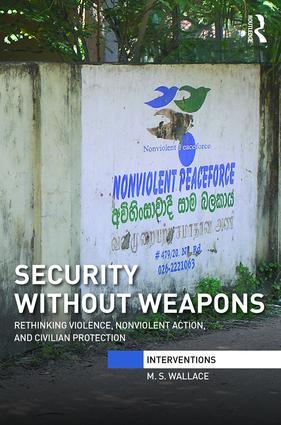Wallace explores ethical yet effective responses to violence, proposing nonviolent intervention (civilian peacekeeping) as a third option for protecting civilians during humanitarian crises. This book addresses a diverse range of literatures and debates, and is both philosophically innovative and practically useful for those working in the field.
Inhaltsverzeichnis
Introduction
Part I: Violence and nonviolence
Chapter 1: Challenging the distinction between legitimate and illegitimate violence
Chapter 2: Questioning the efficacy of violence
Chapter 3: Enacting conviction and provisionality through nonviolent action: difference, responsibility to the other(s), and the nonviolent coercion or transformation of the opponent
Part II: Understanding violence in Sri Lanka's civil war and counterinsurgency
Chapter 4: Confronting wrongs, creating wrongs: official discourses and the legitimation of violence
Chapter 5: Making sense of violence: media accounts and combatants' understandings
Part III: Confronting violence in Sri Lanka's civil war and counterinsurgency
Chapter 6: Assessing armed and unarmed strategies: toward a psycho-discursive theory of civilian protection and violence prevention
Chapter 7: Rethinking protection: Nonviolent Peaceforce in Sri Lanka
Conclusion





































